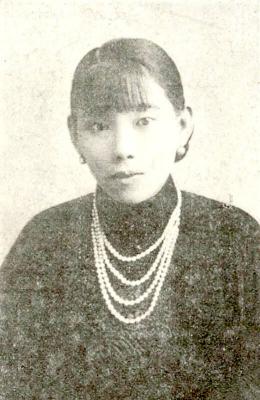Rated PG, directed by Gerard Krawczyk, with Luc Besson (Hubert Fiorentini), Ryoko Hirosue (Yumi Yoshimido), Michel Muller (Momo), Carole Bouquet (Sofia), running time: 94 minutes. In French and Japanese with Chinese subtitles.
Jean Reno is a retired French secret policeman who goes to Japan following the death of his Japanese wife -- his only true love -- to be with a child he's never met and only recently learned of. He discovers that Japan's feared yakuza is after her and wants to recover ?$200 million and he's forced to protect his daughter in a country with which he's totally unfamiliar. The script, written by Luc Besson, is as thin as the paper it was written on, but provides plenty of opportunity for the action you'd expect from a Besson story. Jean Reno is well suited to a role and a film that is surprisingly funny and never boring.

Many people noticed the flood of pro-China propaganda across a number of venues in recent weeks that looks like a coordinated assault on US Taiwan policy. It does look like an effort intended to influence the US before the meeting between US President Donald Trump and Chinese dictator Xi Jinping (習近平) over the weekend. Jennifer Kavanagh’s piece in the New York Times in September appears to be the opening strike of the current campaign. She followed up last week in the Lowy Interpreter, blaming the US for causing the PRC to escalate in the Philippines and Taiwan, saying that as

US President Donald Trump may have hoped for an impromptu talk with his old friend Kim Jong-un during a recent trip to Asia, but analysts say the increasingly emboldened North Korean despot had few good reasons to join the photo-op. Trump sent repeated overtures to Kim during his barnstorming tour of Asia, saying he was “100 percent” open to a meeting and even bucking decades of US policy by conceding that North Korea was “sort of a nuclear power.” But Pyongyang kept mum on the invitation, instead firing off missiles and sending its foreign minister to Russia and Belarus, with whom it

The Chinese Communist Party (CCP) has a dystopian, radical and dangerous conception of itself. Few are aware of this very fundamental difference between how they view power and how the rest of the world does. Even those of us who have lived in China sometimes fall back into the trap of viewing it through the lens of the power relationships common throughout the rest of the world, instead of understanding the CCP as it conceives of itself. Broadly speaking, the concepts of the people, race, culture, civilization, nation, government and religion are separate, though often overlapping and intertwined. A government

Nov. 3 to Nov. 9 In 1925, 18-year-old Huang Chin-chuan (黃金川) penned the following words: “When will the day of women’s equal rights arrive, so that my talents won’t drift away in the eastern stream?” These were the closing lines to her poem “Female Student” (女學生), which expressed her unwillingness to be confined to traditional female roles and her desire to study and explore the world. Born to a wealthy family on Nov. 5, 1907, Huang was able to study in Japan — a rare privilege for women in her time — and even made a name for herself in the